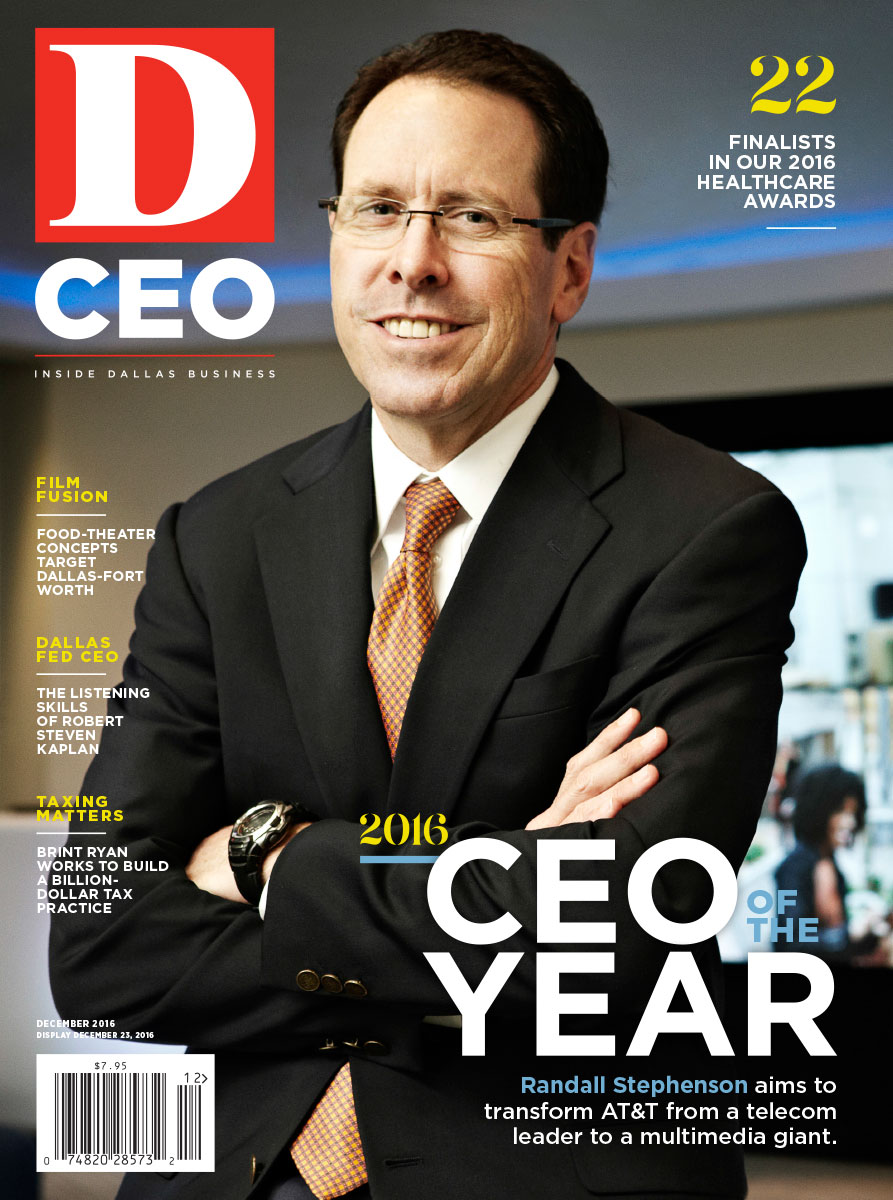It was 1992 and Len Roberts was in his third year as CEO at Shoney’s. The Nashville-based restaurant chain faced an ugly class action lawsuit, with former employees alleging that African-Americans were passed over for jobs and white managers were fired if they hired too many. Depositions laid out incriminating evidence about the company’s former leader, Ray Danner. Managers told of how he spat racial epithets and instituted a policy of blackening the letter “o” on Shoney’s job applications to identify black candidates.
“This company operated for decades with a culture of systemic racism,” recalled Roberts during a recent speech in Fort Worth, where he ran RadioShack before retiring in 2005. “Ray Danner and his executive team simply believed that blacks were bad for business.”
Shoney’s board didn’t believe the allegations, but Roberts was convinced the company would lose the case. So he decided to present an ultimatum. Roberts went to Danner’s house and told him that if he didn’t agree to settle the case within 24 hours and pay $130 million, Shoney’s would join the lawsuit on the side of the plaintiffs. And he presented strong evidence, including “never-before-seen photos of Danner getting dressed in his KKK outfit.”
Danner threw Roberts out of his house. The next morning, he agreed to the settlement—on the condition that Roberts resign. “I honestly thought I would walk into a board meeting to a standing ovation,” Roberts told me in an interview. “That’s how naïve I was.”
Fittingly, he chose to share his story publicly for the first time at an August dinner to celebrate the 15th anniversary of North Texas LEAD, an organization that helps companies expand workplace diversity. Roberts said he considers his work with the group “redemption.” Launched as the BOLD Initiative by a handful of Fort Worth companies, including RadioShack, North Texas LEAD works with area employers to develop a pool of available talent that can be tapped for management positions.
LEAD now has 32 member companies across Dallas-Fort Worth, ranging from American Airlines and Oncor Electric to government entities like DFW Airport and Dallas Area Rapid Transit. Each pays an annual fee to access a talent pool of experienced professionals, who are pre-screened by the organization. The effort has led to more than 1,000 hires.
“If you are in a group and everyone comes from the same background, went to the same Ivy League schools, [belongs] to the same country clubs, then your thinking may not be as broad as it could be if you have someone from a different experience,” says Gyna Bivens, LEAD’s executive director who also sits on the Fort Worth City Council.
In a world that is getting smaller and a society that’s becoming more culturally diverse, it pays to employ a workforce that reflects that population. Last year, a McKinsey & Co. study found that companies in the top quartile for racial diversity in management were 35 percent more likely to have financial returns above their industry median. These companies “are better able to win top talent and improve their customer orientation, employee satisfaction, and decision making,” McKinsey reported.
Nicole Fontaine-Bardowell was hired as DART’s chief information officer two years ago. After moving to North Texas from Florida, Fontaine-Bardowell, who is black, connected with LEAD. It helped her learn about the region and tap into valuable networking circles. Currently, 38 percent of the transit system’s executives are people of color.
“I think that the ability to be productive is far greater in a diverse organization than one that’s not because one that’s not diverse tends to be exclusive in a lot of ways,” she says.
The importance of LEAD’s mission carries even more weight this year. One of the enduring images from the horrific shooting that killed five police officers in Dallas was Mayor Mike Rawlings and outgoing Dallas police Chief David Brown side by side, working as partners to calm a frightened city. Their response to the tragedy was impressive, especially for the reality of black and white leaders standing together, tackling issues of race and community. Diversity matters. It’s a lesson not just for other cities, but for corporations and businesses, too.







